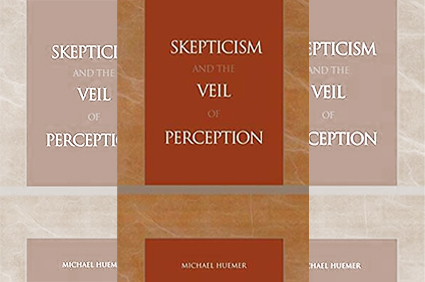Welcome to another installment of Stuff Atheists Say, a series dedicated to combatting slogans and sayings that skeptics raise to stop conversations in their tracks. You can catch up on the previous articles here: part 1, part 2, part 3, part 4.
Today’s slogan is a common skeptic phrase, made famous by the late Christopher Hitchens. And recently I was surprised – and annoyed – to hear it regurgitated in a children’s television show. It is typically raised in regard to some theistic claim, such as the resurrection of Jesus, to put an extraordinary burden of proof on the theist to defend his claim while the skeptic gets to sit back and keep playing the skeptic. So here it is:
Bad “argument” #8: Extraordinary claims require extraordinary evidence.
Now, at face value, it seems like a legitimate statement, that a claim of extraordinary nature should require evidence that is also extraordinary. But as a good student of Greg Koukl’s Tactics (and you have read Tactics, right? If not, stop and do that right now. Or at least watch his video series), you know you should ask a Columbo question: “What do you mean by extraordinary?” Put it back on the skeptic. After all, the statement “extraordinary claims require extraordinary evidence” is a truth claim itself that must be defended. What exactly does it mean and why should I think it’s true?
Hopefully Mr. Skeptic can clarify what he means by extraordinary. Is it merely something out of the ordinary? Because if I drive to work a different way than I usually do, that would qualify as extraordinary. Do I need extraordinary evidence to prove that? Or maybe the skeptic equates extraordinary with supernatural. If he’s a naturalist, he may outright reject the supernatural and so no amount of evidence could ever convince him of the extraordinary. Or what’s most likely the case, it’s a phrase he heard somewhere, thought it was clever, and now he thinks he’s clever by blindly regurgitating it. So make the skeptic define exactly what he means by extraordinary.
Furthermore, when the skeptic asks for extraordinary evidence, does he mean an extraordinary kind of evidence or an extraordinary amount of evidence? The first case is completely unreasonable. If an extraordinary claim requires an extraordinary kind of evidence, then shouldn’t the extraordinary evidence also require an extraordinary explanation to support it, and so on? We’re stuck in an infinite regress, which makes the skeptic’s request impossible.
If the skeptic wants an extraordinary amount of evidence, ask just how much evidence is enough to be considered extraordinary. Again, his skepticism could simply be putting an unreasonable burden on you, one that you could never possibly provide. It’s best to simply ask the skeptic what evidence he would expect if the claim you made were true and determine whether or not it is reasonable.
However, theists aren’t merely making extraordinary claims. We gather facts and then come to the best conclusion from the data, known as inference to the best explanation. So if Jesus truly died by crucifixion, if people really did have supposed encounters with Jesus after his death that made them willing to suffer and even die for their beliefs, if the tomb Jesus was buried in actually was empty, what’s the best explanation of those facts? Not just any explanation, the best explanation.
Lastly, the statement “extraordinary claims require extraordinary evidence” can also be turned around on atheists. The universe coming into existence uncaused from nothing and the existence of the multiverse are both extraordinary claims. Do atheists have extraordinary evidence to support them? Yet somehow those claims are less extraordinary than there being a God who caused the Big Bang and brought our finely-tuned universe into existence.
Conclusion
 If we remove the word extraordinary from the slogan, the statement is entirely reasonable: claims require evidence. But how much evidence is required to substantiate a claim? For some skeptics, no evidence is ever enough. Find that out before wasting your breath on a super-skeptic.
If we remove the word extraordinary from the slogan, the statement is entirely reasonable: claims require evidence. But how much evidence is required to substantiate a claim? For some skeptics, no evidence is ever enough. Find that out before wasting your breath on a super-skeptic.
So do extraordinary claims require extraordinary evidence? No. Any claim requires adequate evidence. Instead of getting stuck on slogans, present your evidence and ask the skeptic to honestly follow it where it leads, no matter how extraordinary the conclusion may seem. Because as Sherlock Holmes said:
“Once you eliminate the impossible, whatever remains, no matter how improbable, must be the truth.”
Featured image credit: Nick Youngson









